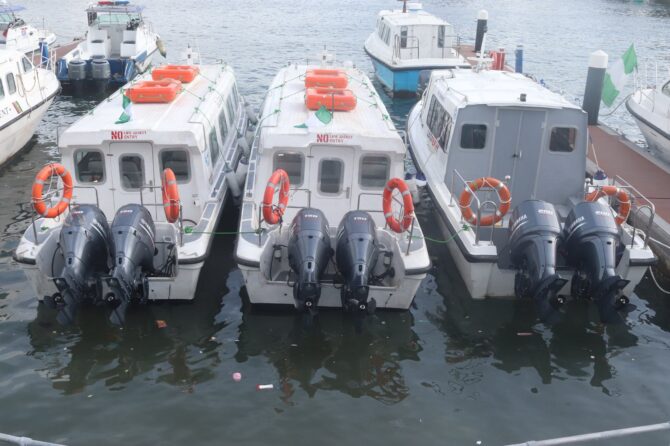As Nigeria stands at the crossroads of economic challenges, the resilience and adaptability of its industries become paramount for sustainable growth. In this blog post, we delve into the intricate relationship between manufacturing investments and weathering economic storms in Nigeria. Against a backdrop of historical economic fluctuations and uncertainties, understanding the role of manufacturing in fostering resilience and adaptability becomes crucial. Join us on a journey through the landscape of Nigeria’s manufacturing sector as we explore the strategies, opportunities, and government initiatives that contribute to navigating and thriving in the face of economic adversities.
Economic Challenges in Nigeria’s Manufacturing Sector
Historical Context of Economic Challenges
Nigeria, a nation with immense potential, has faced its share of economic challenges over the years. Understanding the historical context is crucial for investors looking to navigate the complexities of the manufacturing sector. Examining past economic downturns provides insights into the resilience demonstrated by manufacturing companies during turbulent times.
Impact on Manufacturing Companies
The economic challenges in Nigeria have significantly affected the manufacturing sector. Fluctuations in currency value, high inflation rates, and policy uncertainties have created a demanding environment for businesses. Manufacturing companies, in particular, have had to devise strategies to withstand these pressures and continue contributing to the nation’s economic development.
Overview of Key Challenges
1. Inflation: The persistent issue of inflation in Nigeria has posed challenges for manufacturing companies in managing production costs, impacting profit margins.
2. Currency Fluctuations: The volatility in the Nigerian currency adds another layer of complexity for manufacturers, affecting import costs and export competitiveness.
3. Policy Uncertainties: Rapid changes in government policies and regulations can create an unpredictable business environment, requiring companies to stay agile in their strategies.
Navigating these challenges demands a deep understanding of the economic landscape, strategic planning, and a commitment to resilience from both existing and potential investors in Nigeria’s manufacturing sector.
Resilience Strategies for Manufacturing Investors
In the dynamic landscape of Nigeria’s economy, the manufacturing sector often faces various challenges, from economic downturns to policy uncertainties. As an investor eyeing this sector, understanding and implementing resilience strategies are crucial for weathering these storms and ensuring long-term success. Here are key strategies to enhance your investment resilience:
1. Diversification of Investments
Why it matters: Spreading your investments across different industries can mitigate risks associated with fluctuations in a specific sector.
Action steps: Explore opportunities in various manufacturing sub-sectors, balancing high-risk, high-reward investments with more stable options.
2. Embracing Technology and Innovation
Why it matters: Technology can drive efficiency, reduce costs, and enhance competitiveness, making your investments more resilient.
Action steps: Invest in technologies such as automation, data analytics, and AI to streamline manufacturing processes and stay ahead in the market.
3. Strategic Partnerships and Collaborations
Why it matters: Collaborating with other businesses fosters resilience by leveraging combined strengths and sharing risks.
Action steps: Identify potential partners for joint ventures or strategic alliances, pooling resources to navigate economic challenges collectively.
4. Efficient Supply Chain Management
Why it matters: A well-optimized supply chain minimizes disruptions and ensures timely production.
Action steps: Evaluate and enhance your supply chain processes, considering factors like supplier relationships, logistics, and inventory management.
Adaptability Measures for Nigerian Manufacturing Companies

In the dynamic landscape of Nigeria’s manufacturing sector, adaptability is a key factor in weathering economic challenges. As companies face uncertainties such as inflation, currency fluctuations, and policy changes, those equipped with effective adaptability measures emerge stronger and more resilient. Here are essential strategies for Nigerian manufacturing companies aiming to thrive in the face of economic fluctuations:
Flexibility in Production Processes
Adaptability begins with the ability to adjust production processes swiftly. Implementing agile manufacturing practices allows companies to respond promptly to changing market demands. This involves streamlining operations, embracing lean methodologies, and investing in technology that facilitates quick adjustments in production lines.
Embracing Sustainable and Eco-Friendly Practices
Environmental sustainability is no longer just a buzzword; it’s a strategic imperative. Manufacturing companies in Nigeria can enhance their adaptability by integrating eco-friendly practices. This not only aligns with global sustainability goals but also caters to the growing consumer preference for environmentally conscious products. From energy-efficient processes to eco-friendly packaging, sustainability becomes a competitive advantage.
Response to Market Trends and Consumer Demands
Adaptability hinges on a deep understanding of market trends and consumer preferences. Nigerian manufacturing companies should invest in market intelligence and analytics to stay ahead of shifts in demand. By proactively adjusting product offerings or introducing innovations, companies can capture new market segments and maintain a competitive edge.
In essence, adaptability is about creating an organizational culture that values change and proactively seeks opportunities within it. Companies that embrace flexibility, sustainability, and market responsiveness position themselves not only to weather economic challenges but also to thrive and grow in the ever-evolving manufacturing landscape of Nigeria.
Risks and Mitigation Strategies: Navigating Uncertainties in Manufacturing Investments
Investing in manufacturing companies in Nigeria presents exciting opportunities, but like any venture, it comes with its share of risks. Understanding these risks and implementing effective mitigation strategies is crucial for navigating the economic uncertainties. Let’s delve into the key risks and explore strategies to ensure your manufacturing investments weather the storms.
Identification of Potential Risks
1. Economic Volatility: Nigeria’s economic landscape can be unpredictable, with factors like inflation and currency fluctuations affecting manufacturing operations.
2. Regulatory Challenges: Navigating through complex regulatory frameworks and policy changes can pose hurdles for investors.
3. Supply Chain Disruptions: Global and local supply chain disruptions can impact production and distribution, especially in times of crisis.
Mitigation Strategies for Economic Uncertainties
1. Diversification of Investments:
Spread investments across different sectors to minimize the impact of economic downturns in specific industries.
2. Continuous Monitoring and Analysis:
Stay informed about economic indicators, policy changes, and market trends to adjust strategies accordingly.
3. Effective Risk Management:
Implement robust risk management practices to identify, assess, and mitigate potential risks.
4. Strategic Partnerships:
Form strategic alliances with reliable partners to share resources and expertise, enhancing resilience.
5. Technology Adoption:
Embrace technological advancements to streamline processes, improve efficiency, and stay competitive.
6. Adaptive Supply Chain Management:
Build a flexible and adaptive supply chain that can withstand disruptions through diversification and contingency planning.
7. Government Engagement:
Stay engaged with government initiatives, understand policies, and leverage available incentives to mitigate regulatory risks.
The Path Forward
As an investor in Nigeria’s manufacturing sector, being aware of potential risks is the first step toward building a resilient portfolio. By implementing these mitigation strategies, you not only safeguard your investments but also position yourself to capitalize on the vast opportunities the market offers.
Remember, resilience and adaptability are the cornerstones of successful manufacturing investments. Stay proactive, stay informed, and forge ahead with confidence in the dynamic landscape of Nigeria’s manufacturing industry. The potential rewards await those who navigate challenges with strategic acumen.
Conclusion
In the ever-evolving economic landscape of Nigeria, the resilience and adaptability of manufacturing investments stand out as crucial pillars for sustained growth and success. As we’ve explored, the challenges faced by the manufacturing sector are not merely obstacles; they are opportunities for innovation and strategic evolution.
In concluding our journey through the dynamics of investing in Nigerian manufacturing companies, it is evident that a forward-thinking approach, coupled with a readiness to adapt, can navigate through economic uncertainties. The importance of manufacturing in stabilizing the economy cannot be overstated, and investors play a pivotal role in shaping this narrative.
To potential investors considering the Nigerian manufacturing landscape, this is not just an opportunity to allocate resources—it’s an invitation to be part of a transformative journey. The call to action is clear: seize the moment, embrace the challenges, and contribute to the development of a robust and dynamic manufacturing sector in Nigeria.











